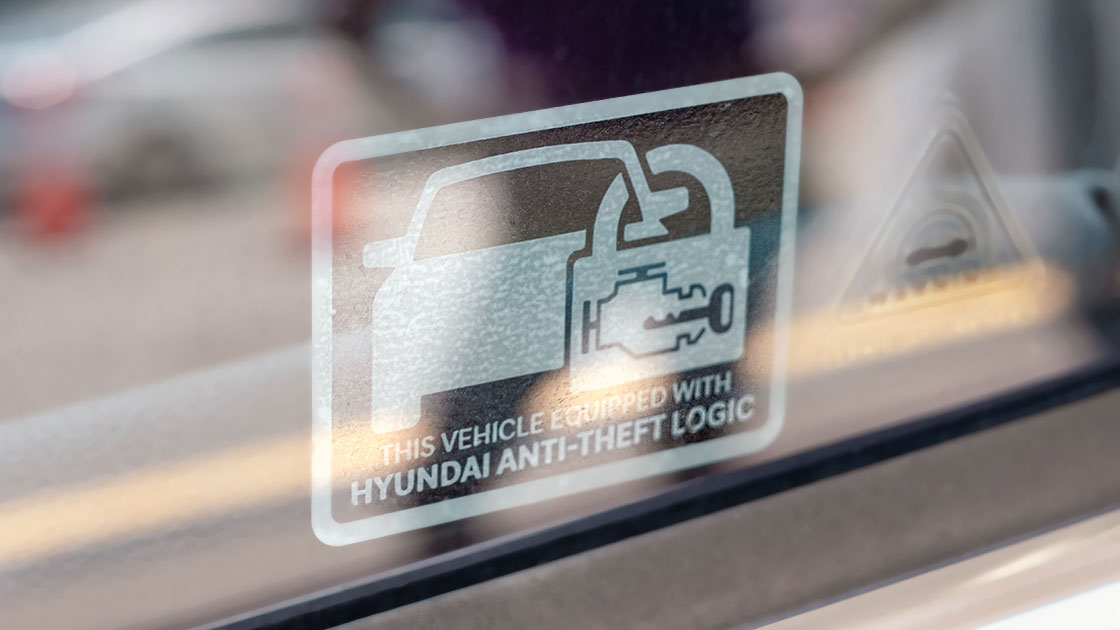Anti-theft software tamps down viral theft trend targeting Hyundai, Kia vehicles
August 7, 2024

A software upgrade offered to the owners of Hyundai and Kia vehicles that were sold without electronic immobilizers cut theft rates by more than half, new research from the Highway Loss Data Institute shows.
The companies began implementing the software upgrade in February 2023 in the wake of a tidal wave of theft claims that started during the COVID-19 pandemic, when instructional videos posted on social media kicked off a viral trend. With the new software installed, vehicles will only start if the owner’s key or an identical duplicate is in the ignition. Vehicles with the software also receive a window sticker aimed at deterring potential thieves.
Roughly two dozen 2011-22 Hyundai and Kia models are eligible for the upgrade. Those vehicles that received it as of December 2023 — a total of 30% of the eligible Hyundais and 28% of the eligible Kias in HLDI’s database — had theft claim frequencies that were 53% lower than vehicles that didn’t get the upgrade, HLDI found.
Those claims aren’t all for thefts of the entire vehicle. They also include claims for damage to vehicles that were stolen and recovered, theft of vehicle parts and items stolen from inside the vehicle. The frequency of whole vehicle theft, which HLDI calculates by matching the cost of the claim to the amount insurers pay for the same model if it’s totaled in a crash, fell by a larger 64% for vehicles with the upgrade.
“The companies’ solution is extremely effective,” said Matt Moore, senior vice president of HLDI. “If you own a Hyundai or Kia vehicle without an electronic immobilizer, you should call your local dealer about getting the software upgrade today.”
Electronic immobilizers were standard equipment on only 17% of 2011 Hyundai and Kia models, compared with 92% of 2011 models from all other brands. While that percentage climbed rapidly after model year 2015, even in model year 2022 immobilizers were standard on only 84% of Hyundai and Kia models, compared with 96% of models from other brands. (By 2023, electronic immobilizers were standard on all the companies’ models.)
While the HLDI study period ended in December 2023, Hyundai and Kia have continued to upgrade vehicles. According to the two automakers, as of mid-July approximately 60% of eligible vehicles had been upgraded. Some trims without immobilizers are ineligible for the software upgrade because they lack alarm systems.
Theft claim frequency for Hyundai and Kia vehicles remains elevated, even for models with the new software. One reason may be that the software-based immobilizer only activates if the driver remembers to lock the vehicle with a fob, while many people are in the habit of using the switch on the door handle.
In addition, thieves who are thwarted by the software upgrade may be stealing other items from inside the vehicle.
Overall, theft claim frequency for 2003-23 Hyundai and Kia models in the second half of 2023 was more than 11 times as high as in the first half of 2020 and more than 8 times as high as the July-December 2023 theft claim frequency for other brands, a separate HLDI study found. Vandalism claim frequency for Hyundai and Kia models over the second half of 2023 was also 6 times as high as the first half of 2020 and 5 times as high as the July-December 2023 vandalism claim frequency for other brands. Presumably, vandalism claims spiked as a result of failed theft attempts, which typically result in broken windows, scratched doors or damage to the steering column.
Notably, claim frequency for both theft and vandalism continued to rise for Hyundai and Kia throughout 2023 despite the implementation of the software upgrade, though the rate of increase for theft tailed off dramatically. Theft frequency increased to 11.7 claims per 1,000 insured vehicle years in July-December from 11.5 claims in January-June, while vandalism frequency rose to 9 claims per 1,000 insured vehicle years from 6.8.
Vandalism claims were also more common for Hyundai and Kia vehicles with the anti-theft software than for those without it. The 61% increase in vandalism claim frequency, relative to vehicles that haven’t received the upgrade, was almost equivalent to the decrease in whole theft claims — though the monetary cost of vandalism is much lower.
“Based on these trends, we expect claim rates for Hyundai and Kia vehicles to gradually drop back in line with those of other brands, as thieves learn they’re no longer so easy to steal and the fad gets stale,” Moore said.